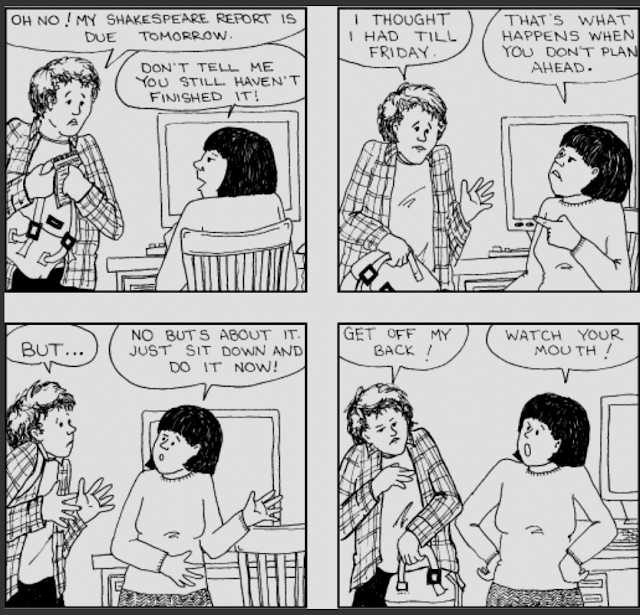Parenting Today
Ever had those days when
you wondered who in the world came up with the statement that “parenting is a
rewarding journey”? What about those days when you are pulling your hair out
because your kids just won’t listen to you? Do you sometimes struggle to understand
their behavior? On these days, a parent’s hope is merely to get through the
day. To somehow survive without your kids hating you.
But when you step back and think about the larger goal of what you want for your children, your goals are loftier than just “survival” and often tend to move towards helping children thrive.
Take a moment and ask yourself, what do you really want for your children? What qualities do you want them to develop? The answer is often some version of helping your children be independent, successful, and happy human beings. And what if I told you that these situations you were just trying to survive are actually opportunities to help your children thrive? Perhaps you may not believe me! But let me try to write a compelling case for why you should believe me.
In our current day and digital era, technological advancements and a more globalized society are throwing unique challenges in raising children. The proliferation of smartphones, social media, and online content has opened up innumerable avenues for accessing information resulting in a major parenting challenge of managing children’s exposure to technology. How do you respond to these challenges? Perhaps you share a story of your childhood days, the “simpler days” when you used to go out and play all day? Only to receive an eye-roll that would seem to have a cascading effect on the fervor of your anger!
So what does one do? As parents, one almost seems wired to protect their children, to save them from harm and hurt but the bitter truth is that you will probably not be able to save them from all their challenges. They’ll fall down, they’ll get their feelings hurt, and face a plethora of emotions from being confused, to being scared, sad, and angry. Rather than attempting to shelter them from these feelings, and life’s inevitable difficulties, you can help them understand these experiences and learn from them. So while you may attempt, with the best of intentions, to alleviate their unpleasant emotions using adult logic to show them the ‘right’ thing to do, you may inadvertently end up dismissing their feelings. “This is such a small thing”, “It’s not the end of the world”, “cheer up”.
Instead of dismissing feelings, acknowledge feelings with a word or a sound (Oh..mm.. I see you are upset, I know this must be tough). Try to really listen to what they’re feeling. Put what you think your kid is feeling into words, but hold back on what you’re feeling.
Rather than advise them on the dangers of social media, ask them what they think are the advantages and disadvantages of social media. And when they stock up on the advantages, try not to point out the flip side of that, but agree with them on the advantages. Engage with them in a discussion on what they think could be the disadvantages.
Agree with my child? What is this
person spouting, you may wonder.
But this is human psychology, once
you agree with them, you would have broken the barrier of resistance, giving
you the opportunity to express what you’re worried about. Perhaps then you
could engage in a discussion on how to explore social media safely, asking them
for their ideas. Rather than criticizing them for adopting the skincare routine
of their favorite actress or influencer, empathize with them. For we have all
had a hero/heroine we might have tried to emulate in our younger days. Validate
their feelings and take the time to understand their thoughts. Explore ways to
help them recognize fake news so that they don’t get influenced by any story. Instead of shutting them down when they
ask difficult questions that you may not know the answer to, engage their
curiosity and read up with them. Encourage them to ask questions and search for
answers, search for differing points of view so that they can evaluate the
information they consume, and make rational decisions for themselves.
As a parent, you think you need to
fix things for your children. But what you really need to be able to do is
enable them to fix things for themselves.
How do we do this? How do we teach
our children when they don’t even listen to us? Well, it’s simple really. We
start by listening to them :)
by Ananya, Bridgewood-A
About the author:
Ananya is a child and adolescent psychologist with a Master's degree from the Tata Institute of Social Sciences, Mumbai. She has worked as a school counselor and with NGOs to make mental health more accessible to individuals.




❣️ So insightful your writing is Ananya! I totally agree with you, as the Mother of 2 grown up daughters. It is a "rewarding journey" when you see your years of "pulling your hair" being rewarded with achieving human beings you give to the world 😁😊 Ultimately it's satisfying but one needs to do the walk on fire to achieve that, and there is always more! Looking forward to more of your writings!
ReplyDelete